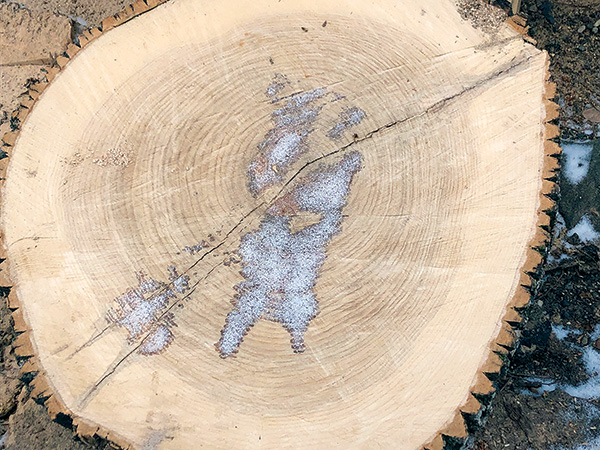
Andy McLean’s Storm Trees business originated with an encounter with a city forester. He’d been a garage woodworker for a few years by then and, when a storm felled a white oak tree in a park across from his house, “I’m like, ‘There’s a lot of lumber in there.'”
He started harvesting the tree with an electric chainsaw and, at one point, found the forester’s note nailed to the log: “Call me.” Turns out, he couldn’t do that in a city park, but “He told me, ‘You really want logs? The city has massive quantities of logs that we don’t really know what to do with,'” McLean reports.
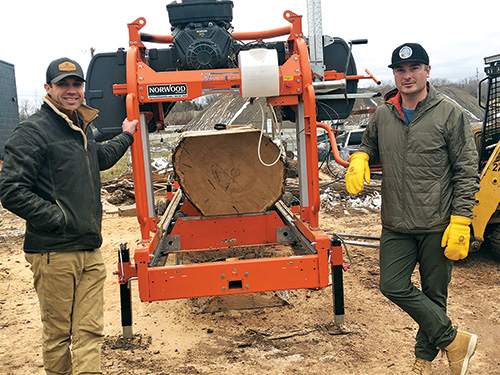
What the city had, McLean says, was “a pile of logs, the better part of the size of a football field, and turns out that they’re paying to get those turned into mulch – and it’s all oak, and ash, and maple and all of this high value, high quality material. I was like, ‘What if I told you I’d take all of it?’ I went and bought a truck trailer, skid steer, sawmill, kiln, warehouse, quit my job and got to work on trying to divert some of this stuff from the waste stream.”
Backlog of Logs
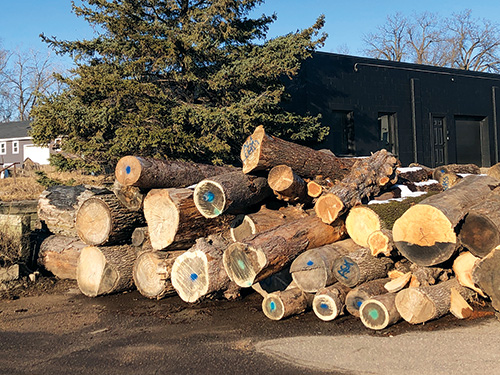
The reason the city of Minnetonka in Minnesota had such a backlog of logs was due to a confluence of factors, McLean says. Trees come down due to emerald ash borer, oak wilt, storm damage; warmer winters may have some impact. Subsidy shifts to solar over biofuels changed municipalities’ markets for mulch.
Partnering with friend Patrick Hughley, McLean began acquiring wood from tree services and municipal mulch sites. They’re often happy to hand over large tree trunks because, “A: they don’t necessarily have the home that they used to for the mulch and B: the big stuff is what breaks their equipment,” McLean says. Some material is dropped off at the Storm Trees warehouse, “but I’ve said that I’m like an Uber driver for logs,” he adds. “I’ll get a ping, ‘We’ve got a tree coming down, can you be here in, like, 30 minutes?'”
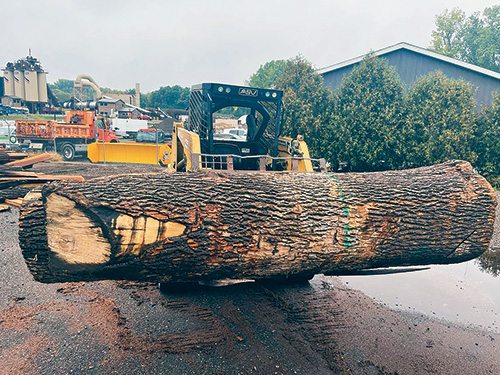
For all this material, Storm Trees tracks data. “We track every board foot that we produce, and then we quantify the carbon sequestration characteristics of those board feet,” McLean says. “Wood is a natural carbon sequestration vehicle. Every city, a lot of companies, all have carbon reduction plans.” They’re tracking granular data, including species – varying wood densities store different levels of carbon – and asking what people want to know.
Capturing Footprints
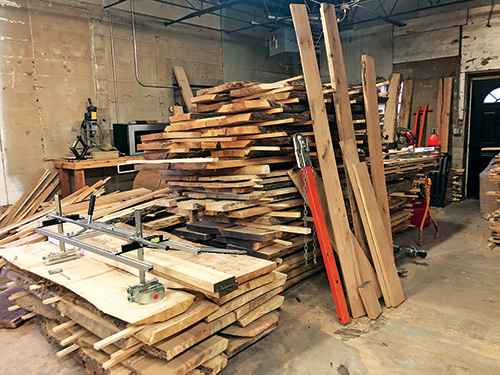
“Would you like to know where it goes? Would you like to know does it come out as a live edge piece? Is it an 8/4? Our end game is to be able to capture the actual carbon footprint of every board foot,” McLean says. He used a live edge table destined for an IT company as an example. “I know that this tree was taken seven miles from the place where it’s going to be used as a table. I know that I drove it here in a truck on a trailer, I know that it ran through a sawmill. All those things layered together can help us capture the carbon footprint as opposed to just the carbon sequestration.”
McLean and Hughley build simple projects, but their focus is on lumber. “It’s time-consuming to pick up and mill trees, dry wood,” McLean says. Currently, they sell to furniture manufacturers, cabinetmakers and craftspeople, plus supply a school district’s woodshop.
Passing the Smell Test
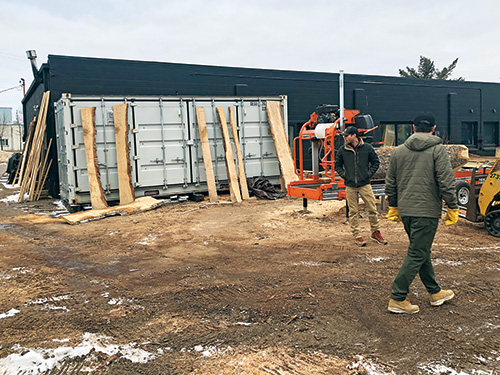
Some contacts came from a Minnesota Woodworkers Guild Expo. “One of my bigger fears as we started this whole operation, was, ‘Is it going to pass the smell test?'” McLean says. “It’s like I’m saying, ‘I got this tree, it’s essentially been defined as somebody else’s garbage, and now you’re going to use it for your expert level project.'”
He also has conversations in the field, where people might reminisce about family sawmills. He says, “It’s actually shockingly moving when you’re sitting there running a skid steer and a sawmill and you’re covered in dirt and, all of a sudden, you’re having a deep conversation with somebody.”
Part of the appeal, Hughley says, is “[We’re] doing some good with business, and people want to see that succeed.”
The limiting factor, McLean adds, “is our ability to process and the sheer volume. If somebody opened up shop doing the exact same thing across the street, we’d be fine. There’s no shortage of desire, demand, or supply.”
For more information, please visit stormtrees.com, call 612-979-5193 or follow @stormtreeslumber on Instagram.
A version of this article originally appeared at eplocalnews.org.





